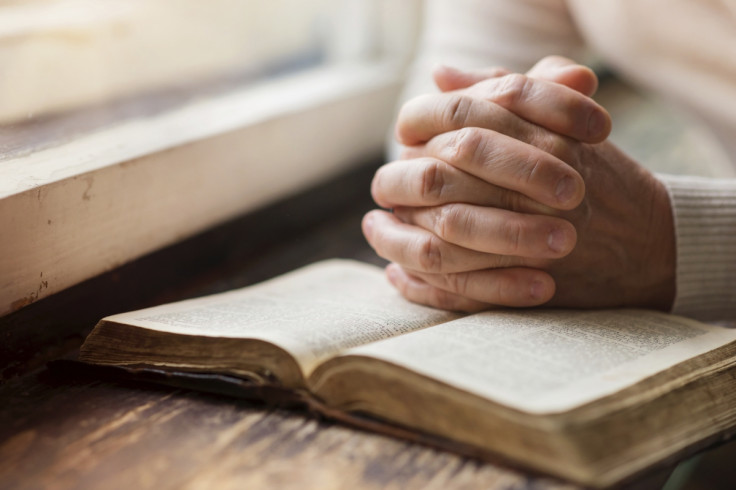Religious men watch more porn than they admit
Sectarian Protestant groups are most likely to say porn is immoral, but consume it anyway.

Americans with strict religious beliefs strongly oppose pornography on moral grounds – but this opposition to porn is not always reflected in their private lives. Researchers have shown that despite their anti-pornography rhetoric, some of these individuals, men especially, still consume pornographic material.
In the US, there has long been tensions between religion and porn. Even before pornographic content was widely made accessible online, conservative Christians were already vehemently opposed to the production and consumption of such material. Porn is indeed associated with nonmarital sexual desire, and as such it does not fit the view that the most devout Christians have of sex.
A common misconception that we often have is that people's professed religious beliefs and moral judgements - such as their rejection of porn - are always in line with their behaviour. But American sociologist Mark Chaves, from the University of Duke, has shown that this is not the case and that people often experience 'religious incongruence'.
"Our professed religious beliefs and values are very often a good indicator of what our reference group thinks is ideal and best, but these are less often good indicators of what we do in our private lives," Samuel Perry, an assistant professor in the Department of Sociology at the University of Oklahoma told IBTimes UK.
"Maybe we sincerely want to live out our professed religious values and but the circumstances around us make that pretty difficult and so the combination of context and human nature mean that deeply religious people often experience profound religious and moral incongruence."
Perry has been studying the intersection of porn and religion over the past few years, and he has started to notice a discrepancy between what people believed in and how they acted in practice.
Many studies show that conservative Christians are far more likely than other Americans to reject porn on moral ground, but they are not considerably less likely to report watching it.
"I started to consider whether deeply religious Americans are more likely than other Americans to experience the situation where they view porn as completely immoral, but they find themselves watching it anyway. That's an experience of religious or moral incongruence, where there is a discrepancy between one's moral view of porn and their usage of it", Perry explained.
Different beliefs and actions
In a study now published in the Journal of Sex Research, the researcher investigated whether religious commitment and theological conservatism predicted a greater incongruence between Americans' moral beliefs regarding porn and their consumption of the material.
Perry analysed data derived from the nationally representative 2006 Portraits of American Life Study. He investigated the case of 2,279 Americans.
He discovered that greater religious service attendance and prayer frequency were predictive of American men affirming that viewing pornography is "always morally wrong" while still viewing it in the previous year. This was not the case for women.
In particular, Evangelical Protestants and other sectarian Protestant groups appeared to be the most likely of all religious groups to report the experience of "incongruence," saying porn is always immoral, but consuming it regardless.
"To put that in perspective, less than 6% of religiously unaffiliated persons reported believing porn is immoral but watch it anyway, compared to over 13% of evangelical Protestants or other sectarian Christian groups," Perry said.

He explained that as men's church attendance or prayer frequency increased, their likelihood of experiencing religious incongruence - that is believing porn is wrong, but watching it anyway -increased in a linear way. In the group with the highest frequency of church attendance, 25 percent of men said watching porn is always immoral, but watched it anyway.
"These findings show that Americans who are deeply religious and theologically conservative, even though they probably do sincerely hate pornography morally, they are the most likely to find themselves violating their own moral views by using it," the researcher added.
"Living in violation of one's own moral convictions isn't a comfortable place to be in. In fact, studies show that people who experience that sort of moral incongruence or cognitive dissonance are more likely to experience depressive symptoms and stress".
Not what you preach
It is still unclear why religious Americans experience this religious incongruence. Some researchers have argued that this is due to the fact that conservative and deeply religious individuals may become obsessed about the very thing they reject.
However, Perry thinks two elements must also be taken into account when studying this issue. The first is that religious Americans are very much a part of mainstream society and they're consuming similar media and technology that everyone else is, so it's not entirely surprising that they also consume porn.
Additionally, religious beliefs are usually good predictors of group behaviour and judgements (saying that "porn is bad") but not so much of our private behaviours. "In combination, those two factors add up to conservative Christians denouncing pornography in public, but being sort of unable to avoid it in private, especially the men," Perry concluded.
© Copyright IBTimes 2025. All rights reserved.






















